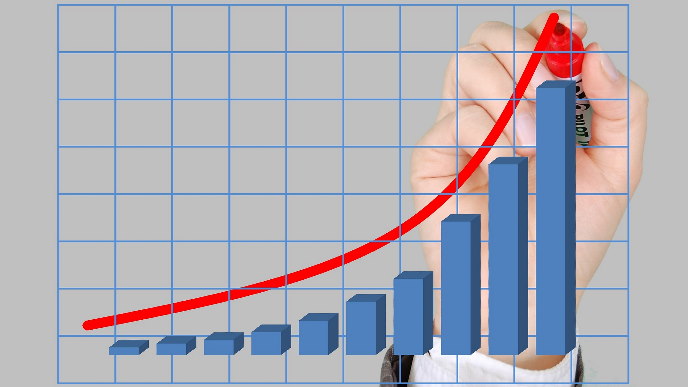Particularly when you work for yourself and spend most of your time working alone, the onus falls on you to provide any sort of direction or structure to both your work day and how you approach work in general. This sense of freedom and autonomy is one of the greatest benefits to professional blogging and entrepreneurship, but it’s also one of your greatest responsibilities. If you want to succeed, you’ve got to put in the work. And the right kind of work at that.
I’ve been reading Atomic Habits by James Clear (highly recommended!) and there’s one critically important concept he discusses that I want to share with you today. And it’s one of those small changes that can have a huge impact on the overall trajectory of your business and career.
Your Interest Is Compounding
First, a little bit of context. At this point, you’ve surely heard about the power of compound interest. It can be both your best friend and your worst enemy, depending on how it applies to your life. If you’re able to sock away some money every month, even if you only put it in a high interest savings account (but hopefully an investment that bears greater returns), you’ll benefit from compound interest.
Let’s say, for example, that you’re able to save $100 a month. Even at a very, very modest annualized interest rate of 3%, you’ll have $6,580 in 5 years. Of that, $481 is interest, or about 7.6% of the total value.

But, what if you were to continue saving $100 every month for a longer period. After 30 years, the total value of your investment balloons to $58,519. Of that, $22,419 is interest, representing 38.3% of the total value. That’s huge. Conversely, if you let your credit card debt continue to pile on compound interest, you’ll never catch up with your payments.
Habits Can Compound Too
The point that James Clear brings up in his book is that this idea of “compound interest” applies just as equally to your habits, both good and bad, even if they don’t necessarily add up in the same kind of quantitative fashion.
Let’s say that you want to be a better writer. This will naturally serve you well as a budding pro blogger, along with the myriad of basic technical skills you’ll also pick up along the way. While you can’t “measure” it in the strictest sense, let’s say that you manage to improve your writing ability just one percent each day.

Realistically, that one percent improvement is negligible. You wouldn’t notice it. But here’s where consistency and compound interest come into play. If you manage to keep up with the one percent improvement each and every day for a whole year, your writing skill will have gone from 100% at the beginning of the year to 378% by the end of 365 days. Put another way, you’ll be almost FOUR TIMES as good at writing as when you started.
That’s nothing to sneeze at, especially when you compare it to an almost forgettable 1% different, right?
An Earth Shaking Revelation
You can apply this notion of compounding habits to just about anything that you want to achieve, either personally or professionally. If you want to get better at creating videos for YouTube, work to get a little better every day and let that habit build on itself. If you want to be more active, nudge the daily step goal on your Fitbit just a little bit each day or week.
Each incremental change might not feel like much — and that’s exactly the point. You need to make it easy, otherwise you won’t stick with it. But if you do stick with it, and you work toward a little bit of positive change on a consistent basis, that’s how you’ll really move mountains.

Allow me to end with one more analogy, also borrowed from James Clear. As you know, there are a series of tectonic plates on the Earth’s surface. At places where they rub up against one another (like near Japan or California), they build up just a little bit more friction, pressure or tension each day. And then, one day, that tension hits a tipping point, the tectonic plate slides significantly, and that’s what causes an earthquake.
It’s not that last little bit of friction that “caused” the earthquake. It was the culmination of everything that came before it. If you want to make that kind of “big move” in your career, put in all the little steps along the way.
